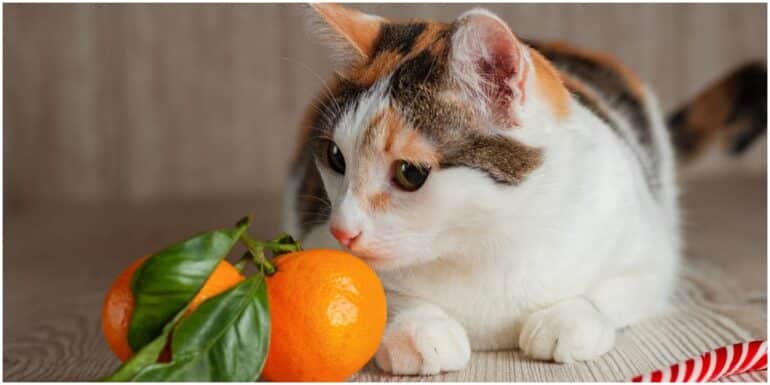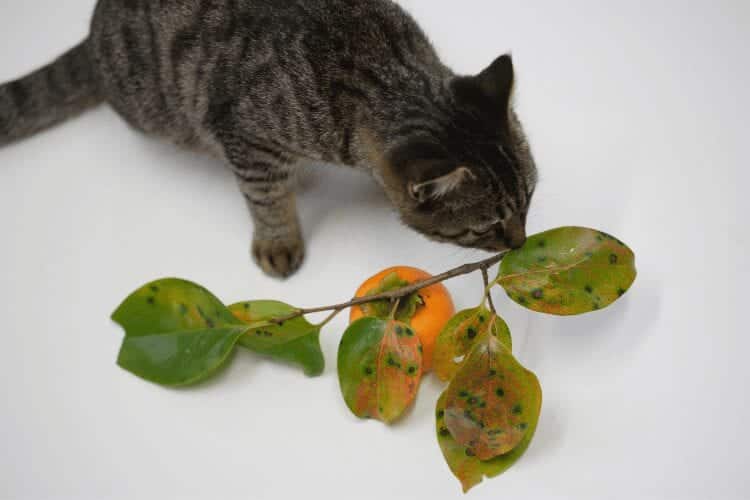Oranges have such a lovely, fragrant smell to us humans. Citrus fruits like oranges or lemons and limes have many other redeeming qualities besides their smell, including the fact that they’re generally good for us and offer up plenty of nutrients. However, some people dislike the taste or the smell of them simply because personal preferences can vary. Just like humans, cats have varying tastes as well. However, most cats really do seem to hate citrus. But why is that?
If you happen to be someone who enjoys eating an orange or grapefruit, you probably have witnessed your curious cat take a whiff and scrunch up his cute little nose in disgust. (Cats are so good at walking away in contempt of human things, aren’t they?) When you take a look at the biology of a feline, it really starts to make sense why most of them hate citrus smells.
Long Trail Veterinary Center helps break down the biology in a simple way. Cats actually have an amazing sense of smell. In fact, compared to humans, it is 14 times more powerful than our own. Pretty awesome, isn’t it? This powerful nose alerts your cat to potential dangers, like another feline on the prowl in his territory. But it also explains why cats hate citrus.
If the scent of a peeled orange is potent for a human nose, remember that it is going to be way stronger to your cat’s nose. This might actually be a good thing though. While cats generally can eat citrus, the plants themselves and sometimes even the skin on the fruit could pose a health hazard for them, according to Litter-Robot’s blog. You may want to do a little research if you’re contemplating growing a citrus tree indoors and you have a cat companion who likes to munch on greenery.
Cats not liking citrus can have its advantages…
The good news about citrus smells making your cat turn away in disgust? You can use this to your advantage if your kitty decides she belongs on your brand new sofa, but she really isn’t supposed to be taking her daily naps there. Try scenting the sofa with a citrus-scented spray and see if that helps make the sofa a little less appealing to your feline friend. Long Trail Veterinary Center advises against trying out essential oils as a repellent though. A citrus essential oil may be way too strong and overpowering for your cat’s ultra-sensitive olfactory system and could lead to irritation, which you both will want to avoid.
Now that you know why most cats seem to have a hatred for citrus, you may want to use citrus-scented items with more caution. Feel free to continue to get your daily dose of Vitamin C from your oranges, but don’t expect your cat to love you for it. And try to avoid essential oils with a citrus scent to help protect your kitty’s sensitive nose. After all, as any good cat guardian knows, life is all about the cat, right? Or at least they like to think so, and we generally go along with it!





 Did you learn anything new and interesting about our feline friends? Share this article with other
Did you learn anything new and interesting about our feline friends? Share this article with other 